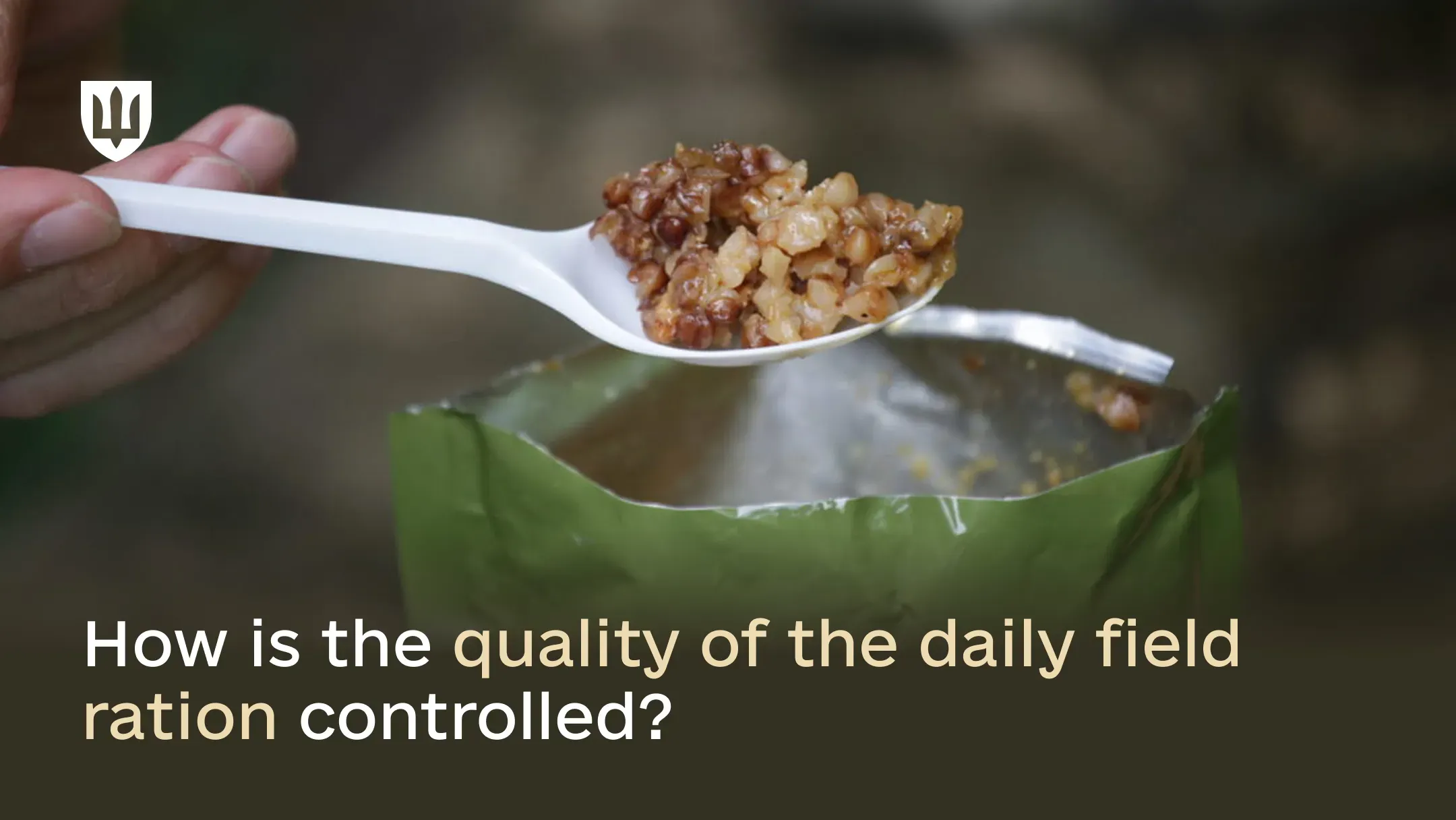The Ministry of Defence has implemented a multi-tiered quality control system for field rations supplied to the Armed Forces of Ukraine

The Ministry of Defence has strengthened the inspection process for daily field ration sets supplied to the Armed Forces of Ukraine. To ensure that frontline defenders receive field rations of the required standard, a multi-level quality control system has been implemented for the procurement and distribution of field rations.
Under the new regulations, state contracts for the supply of field rations mandate veterinary laboratory testing of all components. This requirement applies to soups and main courses, as well as to supplementary food items within the sets.
Following laboratory testing, suppliers are granted authorization to compile the ration sets. Subsequently, the prepared meals undergo tasting evaluations and assessments of their nutritional quality.
The next phase involves the acceptance of ration batches at the Joint Logistics Centers of the Armed Forces of Ukraine. This process is overseen by a dedicated commission comprising experts from the Main Department of Quality Control (MDQC), the Department of Food Safety and Veterinary Medicine, the Ministry of Defence’s procurement agency “The State Operator for Non-Lethal Acquisition” (DOT), the Logistics Forces Command, and representatives of supplier company.
A designated number of crates from each batch are selected and opened to verify the completeness of components and the presence of test protocols for each product item. Any discrepancies identified during the inspection are promptly rectified.
“The implemented quality control system is designed to ensure that only high-standard products reach our military personnel. Identified discrepancies compel suppliers to enhance the quality of ration components, which has a positive impact on overall standards,” stated the Deputy Minister of Defence of Ukraine, Brigadier General of Justice Serhii Melnyk.
Batches of rations found to have violations are rejected and returned to the supplier for corrective action. Since the beginning of the year, MDQC specialists have prevented the distribution of approximately 90,000 ration sets due to non-compliance.
The most common discrepancies include shortages or excesses of specific components, breaches in packaging integrity, or the inclusion of products that have not undergone the required testing. The majority of violations detected pertain to the quality of meat in soups and main courses.
“Throughout January and February of this year, over 200,000 field ration sets have been accepted under the new quality control system. Thanks to these control measures, suppliers are progressively upgrading their production capabilities, which significantly accelerates the resolution of discrepancies and expedites the delivery of high-quality rations to our military,” added IIhor Leshchenko, Head of the MoD’s Main Department of Quality Control.